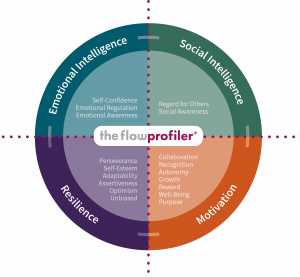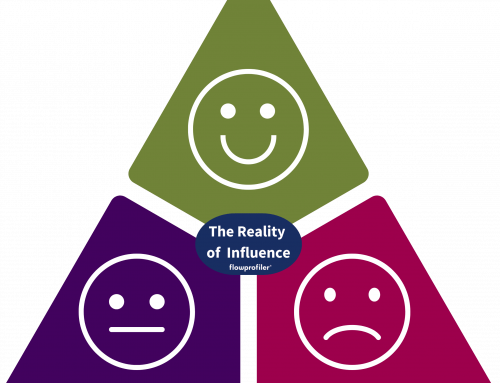A brief history of neuroscience and psychology
 The disciplines of neuroscience and psychology have a long and intertwined history. Early psychological scientists were interested in understanding the relationship between the brain and behaviour. But it was not until the late 19th century that neuroscience began to emerge as its own distinct field.
The disciplines of neuroscience and psychology have a long and intertwined history. Early psychological scientists were interested in understanding the relationship between the brain and behaviour. But it was not until the late 19th century that neuroscience began to emerge as its own distinct field.
During this time, scientists like Carl Wernicke and Franz Gall were beginning to map out the specific areas of the brain associated with different functions. This work laid the foundation for modern neuroscience, which continues to build on our understanding of how the brain works.
At the same time, psychologists were also developing different theories about how the mind works. These theories ranged from Sigmund Freud’s psychodynamic approach to behaviourism, which focused on observable behaviours, through to cognitive psychology, which looked at how we process information.
 Since the early days of neuroscience and psychology, there has been a growing body of research that has looked at the relationship between the two disciplines. This research has shown that neuroscience can help us to understand psychological concepts like memory and emotion.
Since the early days of neuroscience and psychology, there has been a growing body of research that has looked at the relationship between the two disciplines. This research has shown that neuroscience can help us to understand psychological concepts like memory and emotion.
In recent years, there has also been an increasing focus on occupational psychology. Occupational psychology looks at how neuroscience and psychology can be used to improve work performance and well-being.
The physiological relationship between the biology of the brain and psychology has been extensively researched. And it is clear that there is a complex interaction between the two fields, with each informing the other.
Defining neuroscience and psychology
Neuroscience: the study of the nervous system, including the brain, spinal cord, and peripheral nerves. It is a vast and interdisciplinary field that includes everything from the molecular level up to cognitive neuroscience.
Psychology: the study of behaviour and mental processes. It too is a vast and interdisciplinary field, with subfields such as clinical psychology, positive psychology, developmental psychology, social psychology, and neuroscience.
How neuroscience helps psychologists
Neuroscience has helped psychologists to understand more about the brain’s role in psychological disorders. For example, neuroscience research has shown that schizophrenia is associated with abnormalities in the structure and function of the brain (Anotova, Schizophrenia Research 70 (2004) 117 – 145) academia.edu. Studies of Alzheimers also demonstrates this fact (Yong He, Zhang Chen and Alan Evans, Journal of Neuroscience 30 April 2008, 28).
This knowledge has led to new treatments for these conditions. This may not have been possible without an understanding of neuroscience.
Similarly, neuroscience research has also shed light on the neural basis of addiction. This has led to new insight into why some people are more vulnerable to addiction than others. It has also helped to develop new treatments for addiction, which again would not have been possible without an understanding of neuroscience (Wayne Hall, Lucy Carter, Katherine Morley, Addiction, neuroscience and ethics [editorial]. Addiction (2003)).
 Neuroscience is a complex and rapidly developing field. However, the links between neuroscience and psychology are becoming increasingly clear. As our understanding of the brain develops, so too does our ability to support people. These developments help us to understand the link between physical and mental health, and how our emotions can impact our physical well-being.
Neuroscience is a complex and rapidly developing field. However, the links between neuroscience and psychology are becoming increasingly clear. As our understanding of the brain develops, so too does our ability to support people. These developments help us to understand the link between physical and mental health, and how our emotions can impact our physical well-being.
There is a growing body of research that specifically explores how the two disciplines interact. This research is being led by psychologists who are trained in neuroscience, and by neuroscientists who are interested in psychology. Further reading on this can be found at the American Psychological Association’s website.
Some of the key areas of research that are currently being explored include:
✓ The neuroscience of emotions and how they affect our behaviour
✓ The neuroscience of learning and memory, and how we can improve these processes
✓ The neuroscience of mental illness, and how we can develop new treatments
✓ The neuroscience of addiction, and how we can help people to recover from addiction
✓ The neuroscience of decision making, and how we can make better decisions
Neuroscience, psychology and the workplace
Neuroscience has also played a role in the development of occupational psychology. For example, the area of the brain known as the prefrontal cortex is responsible for executive functions such as planning, decision-making, and self-control.

Research has shown that job satisfaction is linked to activity in certain areas of the brain. These areas are known as the reward centres. This research has helped to create interventions that can improve job satisfaction and productivity.
This knowledge can help to develop interventions that improve people’s work lives and reduce stress levels. Studies show that workplace stress for example, affects a part of the brain called the hippocampus. It is important to neuroscience because it helps to understand how work-related stress can impact mental health.
These new understandings help experts to develop better ways to support people who are struggling.
Most psychologists agree that neuroscience is an important area of research that has the potential to transform our understanding of the mind. There are many ways in which neuroscience can be used to improve workplace performance. When we understand how the brain works, we can develop better methods for selection, training and development. Neuroscience can help us to understand the impact of stress on the brain and how to create a positive work environment. It can also help us to understand the neural basis of these constructs and how they relate to job performance.
The field of positive psychology and how it helps employers and employees
 Positive psychology is the study of what makes people happy and how to foster positive emotions. It has been shown that happy workers are more productive workers. This can help employers understand how to create a positive work environment and improve workplace productivity.
Positive psychology is the study of what makes people happy and how to foster positive emotions. It has been shown that happy workers are more productive workers. This can help employers understand how to create a positive work environment and improve workplace productivity.
Employers use tools such as psychometric assessments to screen job applicants, build posi tive workplace cultures and for professional development.
tive workplace cultures and for professional development.
Assessments like flowprofiler®, measure psychological constructs such as emotional intelligence, resilience and motivation.
Emotional intelligence in the work context has been shown to be an important predictor of success. Individuals who are able to understand and regulate their emotions tend to be more successful in negotiations, and are better able to cope with stress in the workplace.
Demonstrating resilience in the workplace is another important factor in predicting success. Resilient employees are able to “bounce back” from difficult experiences and setbacks, and are more likely to persevere in the face of adversity.
Understanding an employee’s motivation and engagement drivers enables employers to better support and engage their workers. Addressing these needs can lead to increased productivity and decreased turnover.
Neuroscience research can also help us to understand how different types of motivation can impact upon work performance. For example, some people are motivated by the prospect of receiving rewards, while others are motivated by a strong sense of purpose.
By understanding how neuroscience and psychology interact we can work to improve workplace productivity and create a more efficient and effective workforce. For example, application of these disciplines help employers to identify the most suitable candidates for specific roles, and to design bespoke training and development programmes, such as the flowprofiler® power skills series, that target the individual needs of each learner.

So far, neuroscience and psychology have had a long and fruitful relationship, with each discipline providing insights that help us to better understand the other. This partnership is likely to continue in the future as we continue to explore the complex workings of the brain and mind.
Neuroscience and psychology continue to evolve.
Would you like to know more about how the flowprofiler® family can support your positive workplace? Email us at hello@flowprofiler.com
flowprofiler® and associated marks are registered trademarks of flowprofiler® Global Limited | All Rights Reserved.



